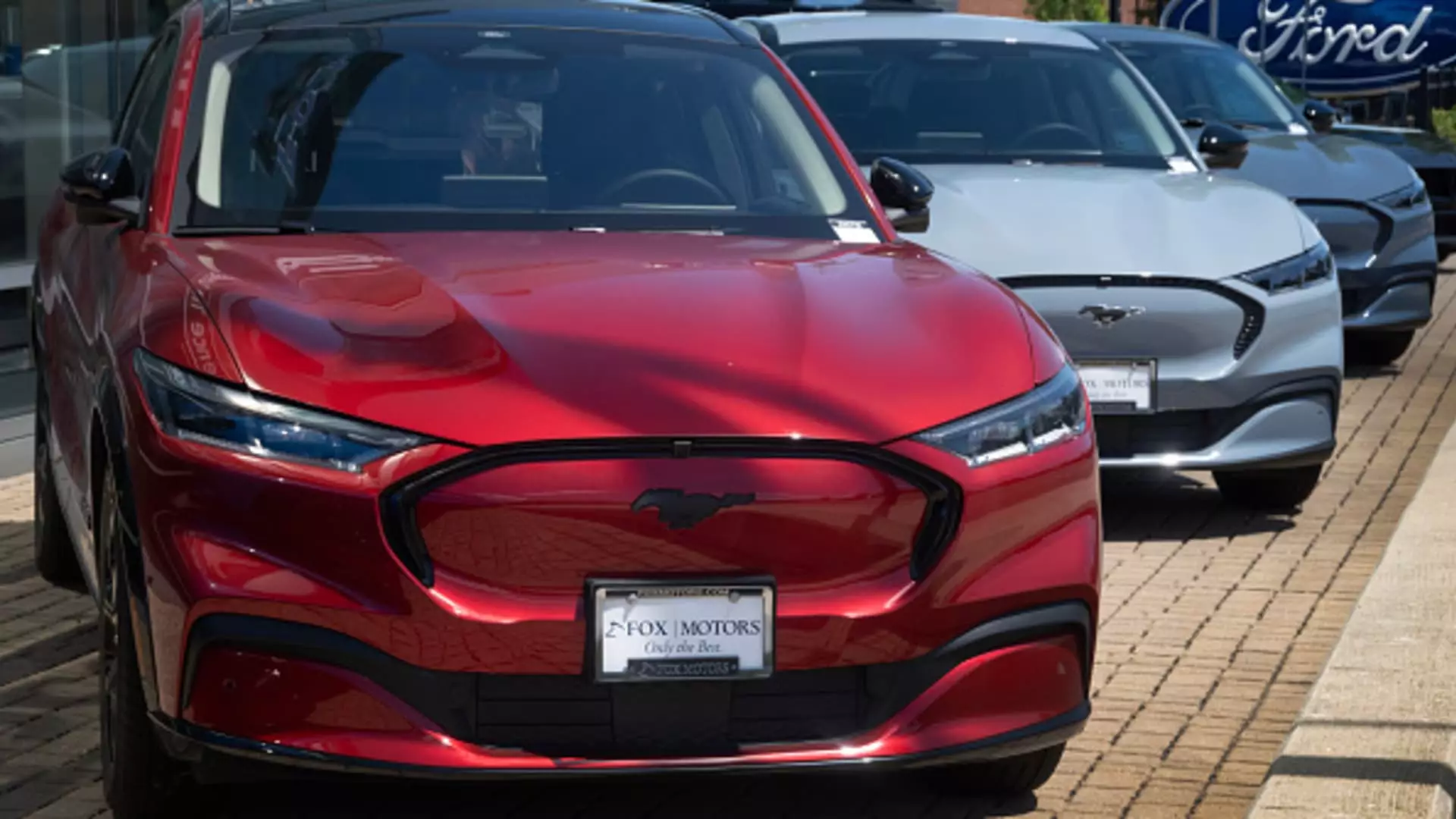Ford Motor Company’s recent announcement of a 1% increase in sales during the second quarter compared to the same period last year reflects the automaker’s resilience in a fiercely competitive automotive landscape. This growth is particularly notable in the context of broader market trends, where many manufacturers are grappling with challenges ranging from supply chain disruptions to shifting consumer preferences. Ford’s strategic focus on its truck lineup—specifically pickups and vans—has paid dividends, as evidenced by a robust 5% increase in truck sales, amounting to a total of 308,920 vehicles sold.
The popularity of Ford’s trucks, especially its F-Series, cannot be overstated. With 199,463 units sold, the F-Series has become a cornerstone of the company’s sales strategy, bolstering its reputation in the highly lucrative truck segment. This performance marks the best second quarter for Ford trucks since 2019, indicating a potential resurgence in consumer interest following the pandemic’s initial market fluctuations. The shift towards these vehicles illustrates Ford’s successful alignment with consumer demand for durability and utility in their automotive choices.
In a shift that signifies the industry’s ongoing transformation, Ford reported impressive sales of electric vehicles (EVs), with a total of 23,957 units sold in the second quarter—an extraordinary 61% increase year-over-year. This surge can be attributed to popular models such as the Mustang Mach-E and F-150 Lightning, which have played a critical role in attracting new customers to the Ford brand. The success of these vehicles is a telling sign that Ford is effectively navigating the transition to electrification, appealing to environmentally conscious consumers while expanding its market share in this rapidly growing segment.
Ford is not solely focusing on fully electric vehicles; hybrid models are also a significant part of its strategy. The company recorded a remarkable 53,822 hybrid vehicle sales this quarter, a 56% increase that establishes a new quarterly sales record. Such performance underscores the automaker’s commitment to provide versatile options that cater to a wider array of consumer needs. By leveraging hybrid technology, Ford is not only addressing transitional consumer preferences but also complying with stringent federal fuel efficiency regulations.
The timing of Ford’s sales update coincides with a report from General Motors (GM), which noted a modest increase of 0.6% in its second-quarter sales. GM’s sales reached 696,086, marking the highest quarterly performance since late 2020. These results suggest that both automakers are managing to outperform industry-wide expectations, which remain relatively flat according to forecasts from automotive analysts like Cox Automotive and Edmunds. As the automotive sector continues to evolve, Ford’s ability to adapt and grow amidst challenges presents a compelling narrative for investors and industry stakeholders alike.
Ford Motor Company’s incremental growth in sales during the second quarter can be attributed to its strong performance in the truck sector and a burgeoning electric and hybrid vehicle lineup. By balancing traditional strength with innovative advancements, Ford is positioning itself to thrive as the market continues to undergo significant changes. Looking forward, the company’s focus on sustainability alongside customer preferences will be key in maintaining its competitive edge in an increasingly crowded marketplace.


Leave a Reply